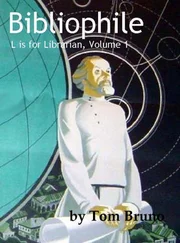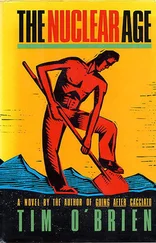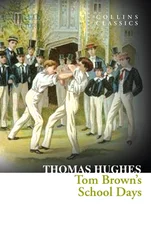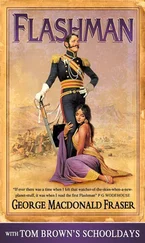Thomas Hughes - Tom Brown at Oxford
Здесь есть возможность читать онлайн «Thomas Hughes - Tom Brown at Oxford» — ознакомительный отрывок электронной книги совершенно бесплатно, а после прочтения отрывка купить полную версию. В некоторых случаях можно слушать аудио, скачать через торрент в формате fb2 и присутствует краткое содержание. Жанр: foreign_prose, foreign_language, на английском языке. Описание произведения, (предисловие) а так же отзывы посетителей доступны на портале библиотеки ЛибКат.
- Название:Tom Brown at Oxford
- Автор:
- Жанр:
- Год:неизвестен
- ISBN:нет данных
- Рейтинг книги:5 / 5. Голосов: 1
-
Избранное:Добавить в избранное
- Отзывы:
-
Ваша оценка:
- 100
- 1
- 2
- 3
- 4
- 5
Tom Brown at Oxford: краткое содержание, описание и аннотация
Предлагаем к чтению аннотацию, описание, краткое содержание или предисловие (зависит от того, что написал сам автор книги «Tom Brown at Oxford»). Если вы не нашли необходимую информацию о книге — напишите в комментариях, мы постараемся отыскать её.
Tom Brown at Oxford — читать онлайн ознакомительный отрывок
Ниже представлен текст книги, разбитый по страницам. Система сохранения места последней прочитанной страницы, позволяет с удобством читать онлайн бесплатно книгу «Tom Brown at Oxford», без необходимости каждый раз заново искать на чём Вы остановились. Поставьте закладку, и сможете в любой момент перейти на страницу, на которой закончили чтение.
Интервал:
Закладка:
"I half-guessed what he wanted to see me for. He knew all my father's affairs perfectly well, and wished to prepare me for what was to come in the evening. 'Your father,' he said, 'is one of the most liberal men I ever met; he is almost the only person who gives anything to the schools and other charities in this parish, and he gives to the utmost. You would not wish him, I know, to cut off these gifts, which bring the highest reward with them, when they are made in the spirit in which he makes them. Then he is getting old, and you would never like him to deny himself the comforts (and few enough they are) which he is used to. He has nothing but his half-pay to live on; and out of that he pays 50L a year for insurance; for he has insured his life, that you may have something besides the cottage and land when he dies. I only tell you this that you may know the facts beforehand. I am sure you would never take a penny from him if you could help it. But he won't be happy unless he makes you some allowance; and he can do it without crippling himself. He has been paying off an old mortgage on his property here for many years, by installments of 40L a year, and the last was paid last Michaelmas; so that it will not inconvenience him to make you that allowance. Now, you will not be able to live properly upon that at Oxford, even as a servitor. I speak to you now, my dear Jack, as your oldest friend (except Burt), and you must allow me the privilege of an old friend. I have more than I want, and I propose to make your allowance at Oxford to 80L a year, and upon that I think you may manage to get on. Now, it will not be quite candid, but I think, under the circumstances, we shall be justified in representing to your father that 40L a year will be ample for him to allow you. You see what I mean?
"I remember almost word for word what the Vicar said; for it is not often in one's life that one meets with this sort of friend. At first I thanked him, but refused to take anything from him. I had saved enough, I said, to carry me through Oxford. But he would not be put off; and I found that his heart was as much set on making me an allowance himself as on saving my father. So I agreed to take 25L a year from him.
"When we met again in the evening, to hear my father's statement, it was as good as a play to see the dear old man, with his spectacles on and his papers before him, proving in some wonderful way that he could easily allow me at least 80L or 100L a year. I believe it cost the Vicar some twinges of conscience to persuade him that all I should want would be 40L a year; and it was very hard work; but at last we succeeded, and it was so settled. During the next three weeks the preparations for my start occupied us all. The Vicar looked out all the classics, which he insisted that I should take. There they stand on that middle shelf – all well bound, you see, and many of them old college prizes. My father made an expedition to the nearest town, and came back with a large new portmanteau and hat-box; and the next day the leading tailor came over to fit me out with new clothes. In fact, if I had not resisted stoutly, I should have come to college with half the contents of the cottage, and Burt as valet; for the old boatswain was as bad as the other two. But I compromised the matter with him by accepting his pocket compass and the picture of the brig which hangs there; the two things, next to his wife, which he values, I believe, most in the world.
"Well, it is now two years last October since I came to Oxford as a servitor; so you see I have pretty, nearly finished my time here. I was more than twenty then – much older as you know, than most freshmen. I daresay it was partly owing to the difference in age, and partly to the fact that I knew no one when I came up, but mostly to my own bad management and odd temper, that I did not get on better than I have done with the men here. Sometimes I think that our college is a bad specimen, for I have made several friends amongst out-college men. At any rate, the fact is, as you have no doubt found out – and I hope I haven't tried at all to conceal it – that I am out of the pale, as it were. In fact, with the exception of one of the tutors, and one man who was a freshman with me, I do not know a man in college except as a mere speaking acquaintance.
"I had been rather thrown off my balance, I think, at the change in my life, for at first I made a great fool of myself. I had believed too readily what my father had said, and thought that at Oxford I should see no more of what I had been used to. Here I thought that the last thing a man would be valued by would be the length of his purse, and that no one would look down upon me because I performed some services to the college in return for my keep, instead of paying for it in money.
"Yes, I made a great fool of myself, no doubt of that; and, what is worse, I broke my promise to my father – I often was ashamed of my poverty, and tried at first to hide it, for somehow the spirit of the place carried me along with it. I couldn't help wishing to be thought of and treated as an equal by the men. It's a very bitter thing for a proud, shy, sensitive fellow, as I am by nature, to have to bear the sort of assumption and insolence one meets with. I furnished my rooms well, and dressed well. Ah! you stare; but this is not the furniture I started with; I sold it all when I came to my senses, and put in this tumble-down second-hand stuff, and I have worn out my fine clothes. I know I'm not well dressed now. (Tom nodded ready acquiescence to this position.) Yes, though I still wince a little now and then – a great deal oftener than I like – I don't carry any false colors. I can't quite conquer the feeling of shame (for shame it is, I am afraid), but at any rate I don't try to hide my poverty any longer, I haven't for these eighteen months. I have a grim sort of pleasure in pushing it in everybody's face. (Tom assented with a smile, remembering how excessively uncomfortable Hardy had made him by this little peculiarity the first time he was in his rooms.) The first thing which opened my eyes a little was the conduct of the tradesmen. My bills all came in within a week of the delivery of the furniture and clothes; some of them wouldn't leave the things without payment. I was very angry and vexed, not at the bills, for I had my savings, which were more than enough to pay for everything. But I knew that these same tradesmen never thought of asking for payment under a year, oftener two, from other men. Well, it was a lesson. Credit for gentlemen-commoners, ready-money dealings with servitors! I owe the Oxford tradesmen much for that lesson. If they would only treat every man who comes up as a servitor, it would save a deal of misery.
"My cure was completed by much higher folk, though. I can't go through the whole treatment, but will give you a specimen or two of the doses, giving precedence (as is the way here) to those administered by the highest in rank. I got them from all sorts of people, but none did me more good than the lords' pills. Amongst other ways of getting on I took to sparring, which was then very much in vogue. I am a good hand at it, and very fond of it, so that it wasn't altogether flunkeyism, I'm glad to think. In my second term two or three fighting men came down from London, and gave a benefit at the Weirs. I was there, and set to with one of them. We were well matched, and both of us did our very best; and when we had had our turn we drew down the house, as they say. Several young tufts and others of the faster men came up to me afterwards and complimented me. They did the same by the professional, but it didn't occur to me at the time that they put us both in the same category.
"I am free to own that I was really pleased two days afterwards, when a most elaborate flunkey brought a card to my door inscribed 'The Viscount Philippine, Ch. Ch., at home to-night, eight o'clock – sparring.' Luckily, I made a light dinner, and went sharp to time into Christ Church. The porter directed me to the noble Viscount's rooms; they were most splendid, certainly – first floor rooms in Peckwater. I was shown into the large room, which was magnificently furnished and lighted. A good space was cleared in the centre; there were all sorts of bottles and glasses on the sideboard. There might have been twelve or thirteen men present, almost all in tufts or gentlemen commoners' caps. One or two of our college I recognized. The fighting man was also there, stripped for sparring, which none of the rest were. It was plain that the sport had not begun; I think he was doing some trick of strength as I came in. My noble host came forward with a nod and asked me if I would take anything, and when I declined, said, 'Then will you put on the gloves?' I looked at him rather surprised, and thought it an odd way to treat the only stranger in his rooms. However, I stripped, put on the gloves, and one of the others came forward to tie them for me. While he was doing it I heard my host say to the man, 'A five-pound note, mind, if you do it within the quarter-of-an-hour.' 'Only half-minute time, then, my lord,' he answered. The man who was tying my gloves said, 'Be steady; don't give him a chance to knock you down.' It flashed across me in a moment now why I was there; but it was too late to draw back; so we stood up and began sparring. I played very steadily and light at first to see whether my suspicions were well founded, and in two minutes I was satisfied. My opponent tried every dodge to bring on a rally, and when he was foiled I could see that he was shifting his glove. I stopped and insisted that his gloves should be tied, and then we went on again.
Читать дальшеИнтервал:
Закладка:
Похожие книги на «Tom Brown at Oxford»
Представляем Вашему вниманию похожие книги на «Tom Brown at Oxford» списком для выбора. Мы отобрали схожую по названию и смыслу литературу в надежде предоставить читателям больше вариантов отыскать новые, интересные, ещё непрочитанные произведения.
Обсуждение, отзывы о книге «Tom Brown at Oxford» и просто собственные мнения читателей. Оставьте ваши комментарии, напишите, что Вы думаете о произведении, его смысле или главных героях. Укажите что конкретно понравилось, а что нет, и почему Вы так считаете.












